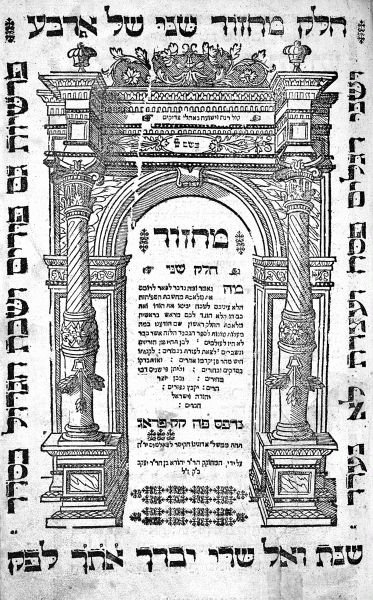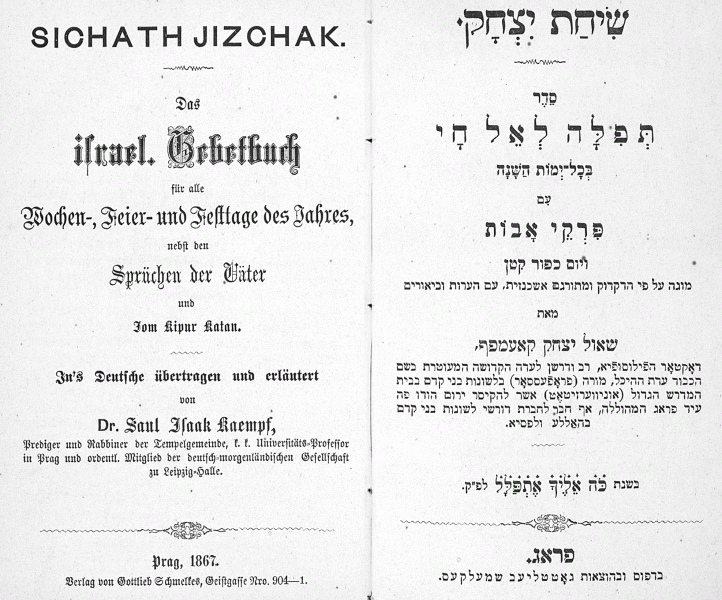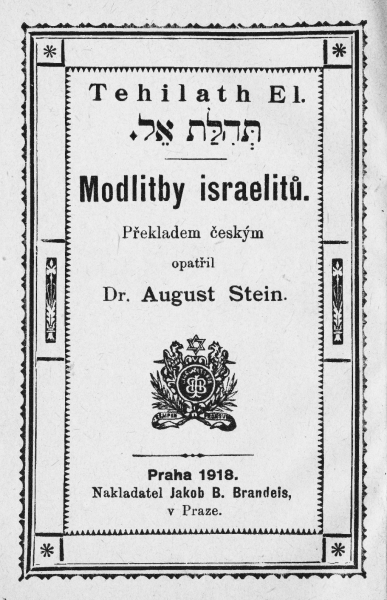Glossary
The entries selection comes from the book “Dictionary of Judaica” (2005), which was written by a group of authors led by Eva Kosáková . Entries were further processed by Jaroslav Kuntoš, Dana Veselská, Olga Sixtová, Michaela Scheibová and Lenka Uličná. The book can be purchased at our e-shop.
Prayer book
There are two basic types of prayer book for various occasions and ceremonies relating to religious services – the siddur (Heb. order, arrangement) usually includes prayers for weekdays, Shabbats, Rosh Hodesh (new moon) and holidays (except for the High and Pilgrimage Holidays), as well as various blessings and ceremonies. It is usually smaller in format than the mahzor (Heb., cycle) – the prayer book for holidays that is usually divided into two parts: prayers for the High Holidays, i.e., New Year (Rosh ha-Shanah) and the Day of Atonement (Yom Kippur) and prayers for the Pilgrimage Holidays, i.e., Passover (Pesah), the Feast of Weeks (Shavuot) and the Feast of Booths (Sukkot). From about the second third of the 19th century, prayer books published in the Czech lands were provided with a parallel translation in German and, in rare cases, Czech. Other types include synagogue books for the cantor, which often contain a list of memorial prayers for deceased members of the congregation, books with various blessings and ceremonies (Pesah Haggadah*, blessings after meals, and prayers for circumcisions, betrothals and weddings), yotzerot books which contain poetic insertions in the religious service, books of selikhot (penitential prayers) and kinot (elegies), prayers for women (often in Yiddish or Judendeutsch) and prayers for the dying and the dead.
Back to list
![[subpage-banner/2_pamatkyaexpozice_1.png]](https://c.jewishmuseum.cz/images/subpage-banner/2_pamatkyaexpozice_1.png)



![[design/2013/Twitter.png]](https://c.jewishmuseum.cz/images/design/2013/Twitter.png)
![[design/2013/Instagram.png]](https://c.jewishmuseum.cz/images/design/2013/Instagram.png)

![[homepage-banner/incident.jpeg]](https://c.jewishmuseum.cz/images/homepage-banner/incident.jpeg)